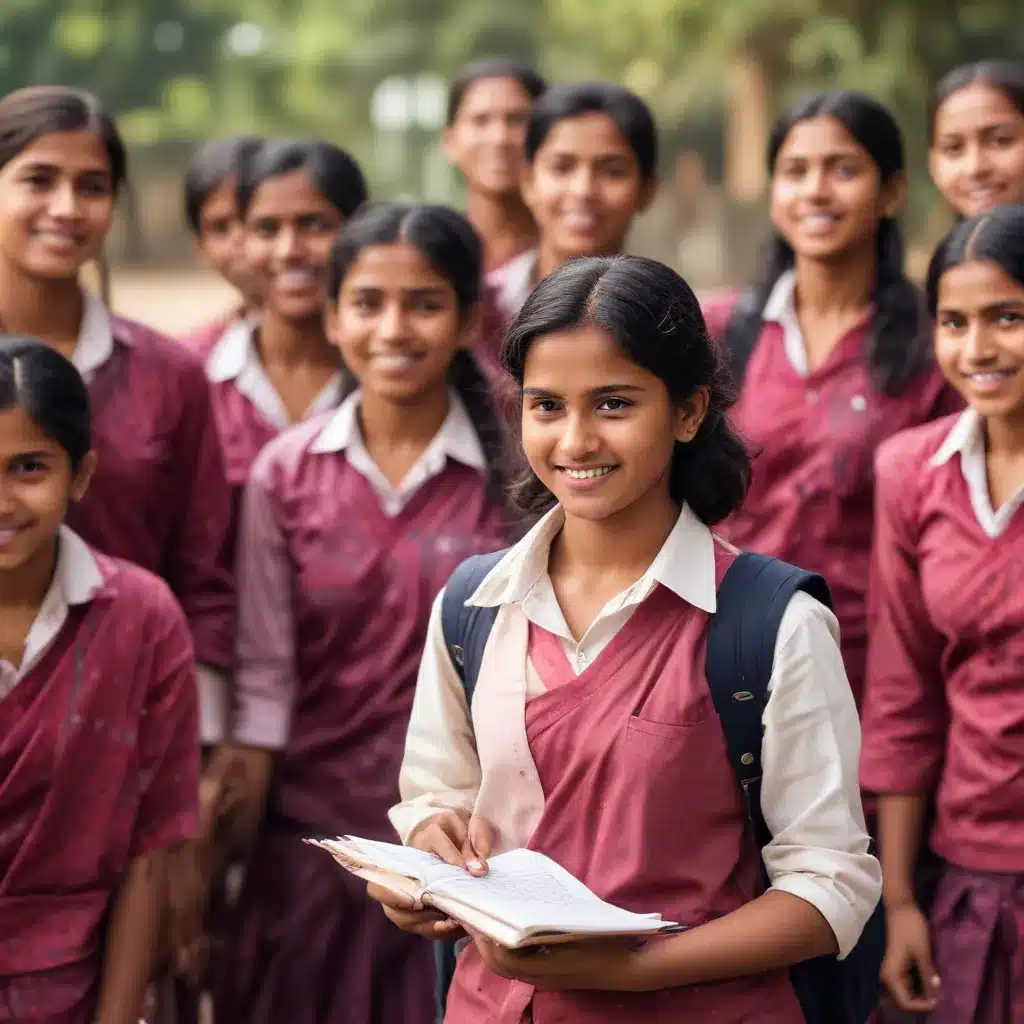
Menstruation Matters: Addressing Period Poverty and Inequity in Higher Education
Menstruation is a natural biological process that impacts the lives of millions of people worldwide. However, for many students in India, managing this fundamental aspect of their health and well-being can pose significant challenges. From limited access to affordable menstrual products to inadequate support in educational settings, the barriers to menstrual equity are multifaceted and deeply rooted in social stigma and systemic inequalities.
This pilot study, conducted by researchers at the University of Illinois Chicago, sheds light on the experiences of students navigating menstruation on urban university campuses in India. By examining the prevalence of period poverty, period-related class disruptions, and avoidance of menstrual hygiene management, this research highlights the urgent need for comprehensive solutions to address the systemic issues that undermine the educational experiences of menstruating students.
Understanding the Scope of the Challenge
The study, which surveyed 106 students aged 18 and above who had experienced menstruation in the past 12 months, revealed startling insights into the realities faced by this population:
Period Poverty
“Approximately one in six students could not afford menstrual products at some point in their lives.”
Period poverty, the inability to access or afford essential menstrual products, is a significant barrier that undermines the health, education, and overall well-being of menstruating students. This finding underscores the pressing need for universities and policymakers to prioritize the provision of free or subsidized menstrual supplies, ensuring that no student is forced to compromise their education or personal dignity due to a lack of resources.
Period-related Class Disruption
“Over half of the students missed all or portions of class due to their period.”
Menstruation-related absenteeism and disruptions to academic performance are deeply concerning, as they can have far-reaching consequences on students’ educational trajectories and future opportunities. Addressing this challenge requires a multifaceted approach that includes improved access to menstrual health education, pain management support, and accommodations that empower students to manage their periods without compromising their academic success.
Avoidance of Menstrual Hygiene Management
“About one in two students avoided changing their menstrual products on campus.”
The study’s findings reveal that many students feel compelled to restrict their menstrual hygiene practices while on campus, potentially jeopardizing their health and well-being. This points to the urgent need for universities to prioritize the provision of clean, accessible, and private spaces for students to manage their menstruation with dignity and comfort.
Amplifying Student Voices
Through the survey’s open-ended responses, the researchers gained valuable insights into the lived experiences and perspectives of the participating students. Four key themes emerged:
-
Inadequate Water, Sanitation, and Hygiene Facilities: Students reported a lack of clean, well-maintained restrooms and the absence of menstrual product dispensers, forcing them to rely on personal supplies or improvise inconvenient solutions.
-
Understocked, Empty, or Non-existent Menstrual Product Dispensers: The unavailability of menstrual products on campus was a common frustration, leaving students feeling unsupported and forced to seek alternatives during their time of need.
-
Desire for Additional Resources and Support: Students expressed a strong desire for their universities to provide more comprehensive menstrual health education, resources, and accommodations to address their needs.
-
The Unpredictability of Menstruation: Many students reported that their menstrual cycles were often unpredictable, adding to the stress and anxiety of managing their periods while on campus.
Prioritizing Menstrual Equity in Higher Education
The findings of this pilot study underscore the urgent need for universities in India to prioritize the creation of a more inclusive and supportive environment for menstruating students. By addressing the multifaceted challenges identified, institutions can foster an educational landscape that empowers all students to thrive, regardless of their menstrual experiences.
To this end, the researchers propose the following recommendations for universities and policymakers:
-
Improve Menstrual Infrastructure and Access to Supplies: Ensure the availability of clean, well-maintained restrooms with discreet and consistently stocked menstrual product dispensers. Explore the provision of free or subsidized menstrual products to address period poverty.
-
Enhance Menstrual Health Education and Awareness: Incorporate comprehensive menstrual health education into academic curricula, destigmatizing the topic and equipping students with the knowledge and tools to manage their periods with confidence.
-
Provide Menstrual-Friendly Accommodations: Offer flexible attendance policies, discrete sick leave options, and private spaces for students to manage their menstruation without disrupting their academic pursuits.
-
Foster a Culture of Openness and Empathy: Collaborate with student groups and campus organizations to drive awareness campaigns and foster a campus culture that celebrates menstruation as a natural, healthy, and empowering aspect of the human experience.
By implementing these strategic interventions, universities in India can take a significant step towards achieving menstrual equity and ensuring that all students have the resources, support, and enabling environment to thrive throughout their educational journeys.
Conclusion
The findings of this pilot study serve as a wake-up call for the urgent need to address the menstrual challenges faced by students in India’s higher education system. By acknowledging the realities of period poverty, class disruptions, and the avoidance of menstrual hygiene management, we can begin to dismantle the systemic barriers that undermine the educational experiences and opportunities of menstruating students.
Through collaborative efforts between universities, policymakers, and student advocates, we can cultivate a more inclusive and supportive educational landscape that empowers all individuals to reach their full potential, regardless of their menstrual experiences. By prioritizing menstrual equity, we can unlock the transformative power of education, ensuring that no student is left behind.

